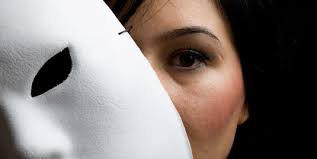In our society, we are often taught to put on a brave face and never let our emotions show. We are told that it is weak to express our feelings, so we learn to bottle them up and hide them away. For many people, this leads to masked depression. Masked depression is when a person appears happy and put together on the outside, while they are struggling with intense emotional pain on the inside. In this blog post, we will discuss the signs of masked depression and how you can get help if you think you might be suffering from it.
Contents
What Is Masked Depression?
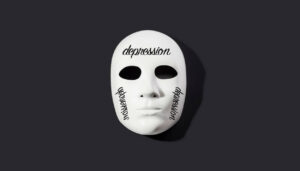
Masquerading as happiness when you’re anything but exhausting. You wake up each day feeling trapped and hopeless, yet you force yourself to put on a brave face for the world. You may be able to fool others into believing that you’re leading a fulfilling life, but deep down, you know the truth. Your smile is nothing more than a mask, hiding your pain from the world.
Masked depression, also known as high-functioning depression, is a type of depression that can be difficult to spot because those who suffer from it are often able to maintain their normal daily routine. They may have a successful career, keep up with their social obligations, and appear to be happy on the outside. But underneath the façade, they’re struggling.
The problem with masked depression is that it can be difficult to get help because those who suffer from it may not appear to be depressed. They may not think they need help because they’re functioning in their day-to-day lives. But the truth is, they’re just good at hiding their pain.
If you suspect that you or someone you know may be suffering from masked depression, it’s important to reach out for help. Just because someone appears to be doing well on the outside doesn’t mean they don’t need support. It’s not always easy to ask for help, but it’s worth it to get the support you need to heal.
What Are The Symptoms of Masked Depression?
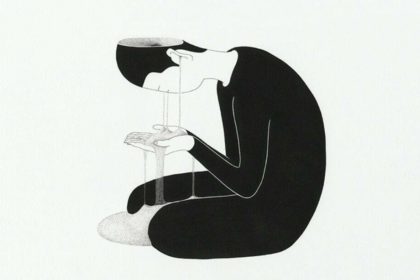
There are many signs of masked depression, but some of the most common include:
Constant Fatigue
One of the most common signs of masked depression is fatigue. Those who suffer from masked depression often feel exhausted, both physically and emotionally. Even if they’re getting enough sleep, they may still feel tired all the time. This fatigue can make it difficult to concentrate, make decisions, or even get out of bed in the morning.
Irritability
Another common symptom of masked depression is irritability. Those who are struggling with masked depression may find that they’re easily annoyed or angered. They may snap at loved ones for no reason or lash out over small things. This irritability can make it difficult to maintain relationships and can lead to further isolation.
Loss of Interest
Those suffering from masked depression may start to lose interest in activities they once enjoyed. Also, they may begin to withdraw from social activities and pull away from friends and family. This loss of interest can make it difficult to find joy in anything.
Changes in Appetite
Many people who suffer from masked depression also experience changes in their appetite. They may lose their appetite altogether or find that they’re constantly hungry. These changes in appetite can lead to weight loss or gain, which can further impact their self-esteem.
Difficulty Concentrating
Another common symptom of masked depression is difficulty concentrating. Those struggling with masked depression may find it hard to focus on work, school, or even conversations. This difficulty in concentrating can make it hard to function in daily life.
Constant Sadness
Even though they may not show it on the outside, those with masked depression often feel sad all the time. They may cry for no reason or feel hopeless about their future. This sadness can be all-consuming and make it hard to get through each day.
Feeling Worthless
Many people who suffer from masked depression also feel like they’re not good enough. They may believe that they’re worthless or that they don’t deserve to be happy. This feeling of worthlessness can impact every aspect of their life.
These are some of the signs of masked depression, but it’s important to remember that everyone experiences depression differently. Some people may only experience a few of these symptoms while others may experience all of them.
What Causes Masked Depression?
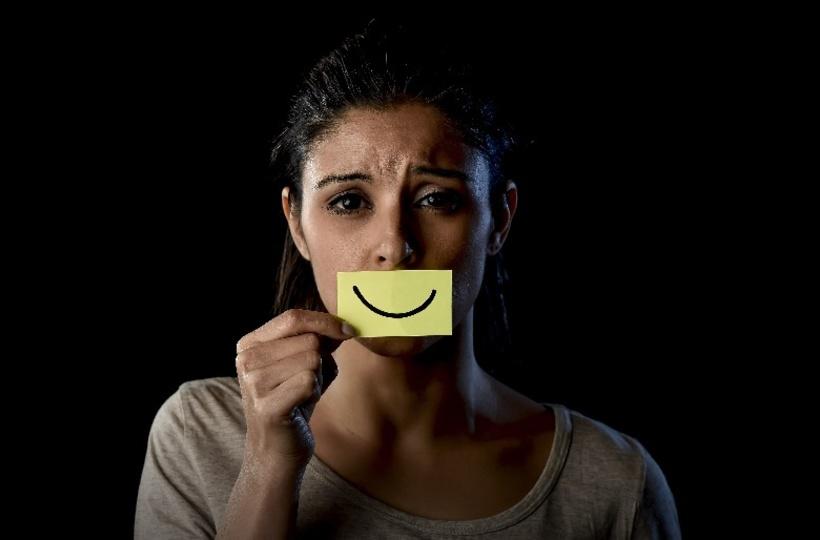
There is no single cause of masked depression. Instead, it’s often the result of a combination of factors. Some of the most common causes include:
Childhood Trauma
One of the most common causes of masked depression is childhood trauma. Those who experienced trauma in their childhood—such as abuse, neglect, or abandonment—are more likely to suffer from masked depression as adults. This trauma can impact their ability to form healthy relationships and can lead to a form of self-isolation.
Genetics
Another common cause of masked depression is genetics. If someone has a family history of depression, they’re more likely to suffer from it themselves. This is because depression can be passed down from generation to generation. An individual’s genes may also make them more likely to experience depression.
Brain Chemistry
Depression is often caused by a chemical imbalance in the brain. This imbalance can be the result of a genetic predisposition or could be caused by environmental factors. Either way, it can impact an individual’s mood and make them more likely to suffer from depression. Brain chemistry can also be the cause of other mental health disorders, such as anxiety or bipolar disorder.
Sexual Abuse
An individual who has experienced sexual abuse is also more likely to suffer from masked depression. This is because sexual abuse can impact an individual’s self-esteem and sense of worth. It can also lead to other mental health disorders, such as post-traumatic stress disorder (PTSD).
Life Experiences
Certain life experiences can also trigger depression. This could include the death of a loved one, a divorce, or losing a job. These experiences can be particularly difficult to deal with if someone doesn’t have a strong support system. Also, if someone is struggling with other issues—such as financial problems or chronic illness—it can be hard to cope with and may lead to depression.
What Are The Risks of Masked Depression?
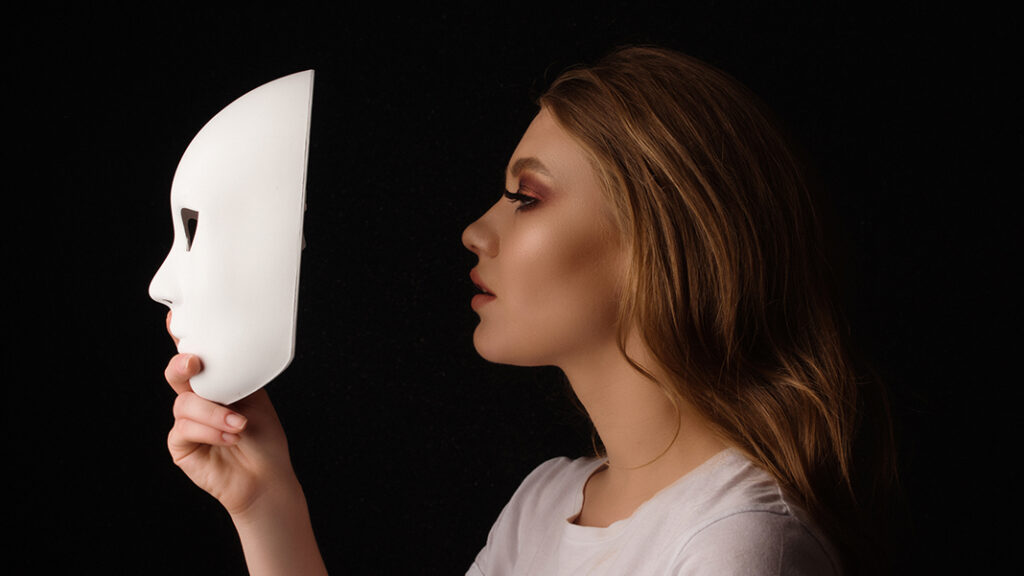
There are many risks associated with masked depression, both for the individual and for those around them. Some of the most common risks include:
Self-Harm
One of the most serious risks associated with masked depression is self-harm. Those who are struggling with masked depression may turn to self-harm as a way to cope with their emotions. This can include cutting, burning, or hitting themselves. Self-harm can also lead to suicide.
Substance Abuse
Another common risk of masked depression is substance abuse. Those who are struggling with masked depression may turn to drugs or alcohol as a way to cope with their pain. This can lead to addiction and potential overdose. Substance abuse can also make it difficult to manage other aspects of life, such as work or school.
Emotional Abuse
An individual with masked depression may also abuse those around them. This could include yelling, name-calling, or putting down others. Emotional abuse can be just as damaging as physical abuse and can often lead to further isolation.
Mental Health Issues
An individual with masked depression is also at risk for other mental health disorders. This includes anxiety, bipolar disorder, and PTSD. Having one mental health disorder can make it more likely to develop another.
Missed Opportunities
One of the most common complications of masked depression is missed opportunities. Those who are struggling with masked depression may miss out on important life experiences—such as job opportunities, relationships, or even fun activities. This can lead to further isolation and make it difficult to live a fulfilling life.
Isolation
Many people who suffer from masked depression feel isolated from the world around them. This isolation can make it difficult to reach out for help. It can also make it hard to maintain healthy relationships. Sometimes, the isolation can lead to further self-harm or substance abuse.
Treatment for Masked Depression
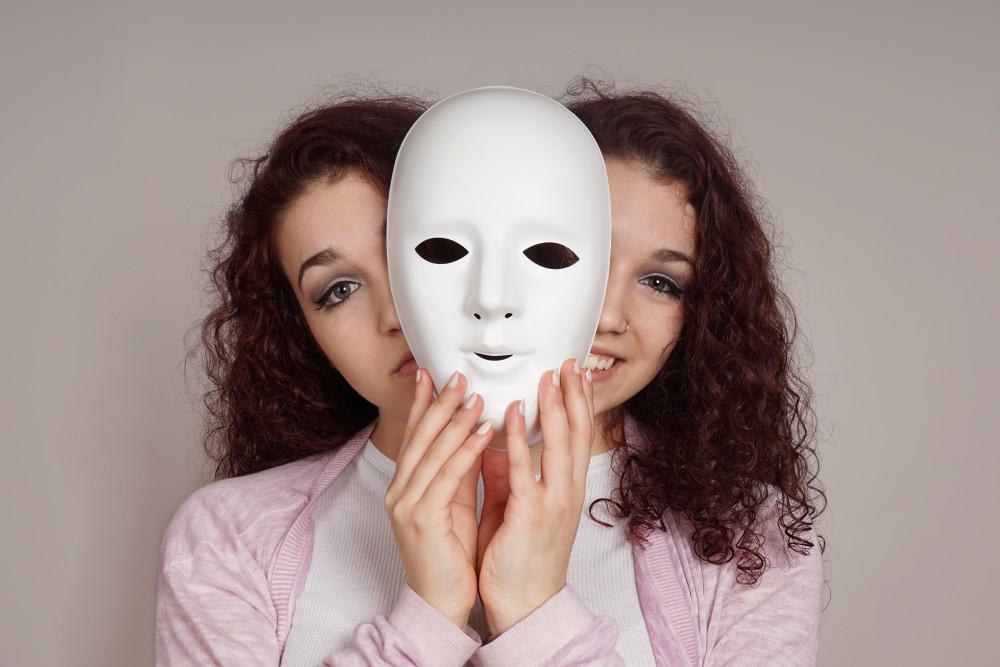
If you think you or someone you know may be suffering from masked depression, it’s important to seek professional help. Depression is a serious mental health disorder that can have a major impact on every aspect of someone’s life. Fortunately, there are many effective treatments available.
Some of the most common treatments for depression include:
Medication
There are many different types of medication used to treat depression. The most common are antidepressants, which work to balance the chemicals in the brain. Antidepressants can take several weeks to start working, so it’s important to be patient.
Some of these medications that are commonly prescribed to treat depression include:
Selective serotonin reuptake inhibitors (SSRIs)
Examples: fluoxetine (Prozac), paroxetine (Paxil), sertraline (Zoloft)
Serotonin and norepinephrine reuptake inhibitors (SNRIs)
Examples: duloxetine (Cymbalta), venlafaxine (Effexor), desvenlafaxine (Pristiq)
Norepinephrine and dopamine reuptake inhibitors (NDRIs)
Example: bupropion (Wellbutrin, Aplenzin, Forfivo XL)
Monoamine oxidase inhibitors (MAOIs)
Examples: isocarboxazid (Marplan), phenelzine (Nardil), tranylcypromine (Parnate)
Tricyclic antidepressants
Examples: amitriptyline, desipramine (Norpramin), nortriptyline (Pamelor)
Atypical antidepressants
Example: mirtazapine (Remeron)
Therapy
Therapy is another common treatment for depression. It can help you learn more about your disorder and how to cope with it. Therapy can also teach you healthy ways to deal with stress and negative emotions. There are many different types of therapy, so it’s important to find one that’s right for you.
Some of the most common types of therapy used to treat depression include:
Cognitive Behavioral Therapy (CBT)
This type of therapy focuses on changing negative thinking patterns and behaviors. CBT is an effective treatment for depression. This type of therapy is usually short-term, lasting for 10-20 weeks.
Interpersonal Therapy (IPT)
This type of therapy focuses on relationships and how they may be affecting your depression. IPT is usually short-term, lasting for 12-16 weeks.
Psychodynamic Therapy
This type of therapy focuses on understanding the root cause of your depression. It can help explore early childhood experiences and traumas. Psychodynamic therapy is usually longer-term, lasting for several months to a year.
Eye Movement Desensitization and Reprocessing (EMDR)
This type of therapy is used to treat PTSD. It involves focusing on a specific memory or event while moving your eyes back and forth. EMDR can help to reduce the intensity of negative emotions associated with traumas.
Support Groups
Support groups provide a safe space for people to share their experiences and connect with others who understand what they’re going through. Also, Support groups are usually free or low-cost.
These support groups are usually led by a mental health professional.
Self-Care
An important part of treatment for depression is self-care. This includes things like getting regular exercise, eating a healthy diet, and getting enough sleep. Self-care can help to reduce symptoms of depression and improve your overall well-being.
These self-care activities can help to improve your depression:
Exercise
Research has shown that exercise can be an effective treatment for depression. Exercise releases endorphins, which have mood-boosting effects. It can also help to reduce stress and improve sleep.
Diet
Eating a healthy diet is important for overall health and well-being. Eating plenty of fruits, vegetables, and whole grains can help to boost your mood and energy levels. Avoiding processed foods, sugary foods, and caffeine can also be helpful.
Sleep
Getting enough sleep is crucial for mental health. Depression often causes insomnia, so it’s important to focus on getting enough rest. Aim for 7-8 hours of sleep each night.
Mindfulness is a form of meditation that involves focusing on the present moment. Also, Mindfulness can help to reduce stress and anxiety and improve mood. There are many different ways to practice mindfulness, such as yoga, breathing exercises, and walking.
Conclusion
Masked depression is a difficult condition to identify and diagnose. It often goes unnoticed because the person may not show any obvious signs or symptoms of depression. If you think you may be suffering from masked depression, it’s important to talk to your doctor or mental health professional. With proper diagnosis and treatment, you can live a happy and fulfilling life.
Sometimes, people with masked depression may also suffer from other mental health conditions, such as anxiety or substance abuse. If you have any concerns about your mental health, be sure to talk to your doctor.
Hope this article was of help to you! If you are suffering from mental health disorders, you may seek help from Therapy Mantra. We have a team of highly trained and experienced therapists who can provide you with the tools and skills necessary for overcoming mental health disorders. Contact us today to schedule an online therapy or download our free Android or iOS app for more information.
